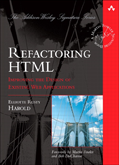Old Fortran weenies like me still remember with fondness (or loathing) RatFor. For those who don’t remember Fortran, you have to understand that it was the first compiled programming language. Consequently it made a lot of mistakes and had major design flaws. For instance, you couldn’t put anything except a line number or a comment marker in the first six characters of each line. That was a relic of its design for punched cards. (Remember those? Probably not if you’re under 40.) These design flaws weren’t trivial or academic problems. Spaceships could crash when you replaced a comma with a period, though the program would still compile.
RatFor was a 1970s era effort to clean up the language. It was an alternate syntax designed around the then hot-idea of structured programming. (OOP hadn’t escaped academia yet.) For instance, it added while loops and got rid of GOTO. It cleaned up the syntax by letting you write >= instead of .GE.. (Some of the early computers that Fortran ran on didn’t have lower case letters, much less angle brackets in their native character sets.) However, RatFor was compiled (more accurately preprocessed) to standard Fortran code, after which it used the same optimizers and libraries that standard Fortran did. That meant it was fully interoperable and could play in a world where not everyone was rational.
Fortran’s not the only language where this happens. For instance, JRuby is a way of writing Java code the Java VM in Ruby. That’s great if you like Ruby, but what if you actually like Java and just want to make it a little more rational? Well, as it so happens I just got an invitation to a Sun event on Monday where I expect Sun to finally pull the trigger and open source Java. Great. Let’s fork!
(more…)
